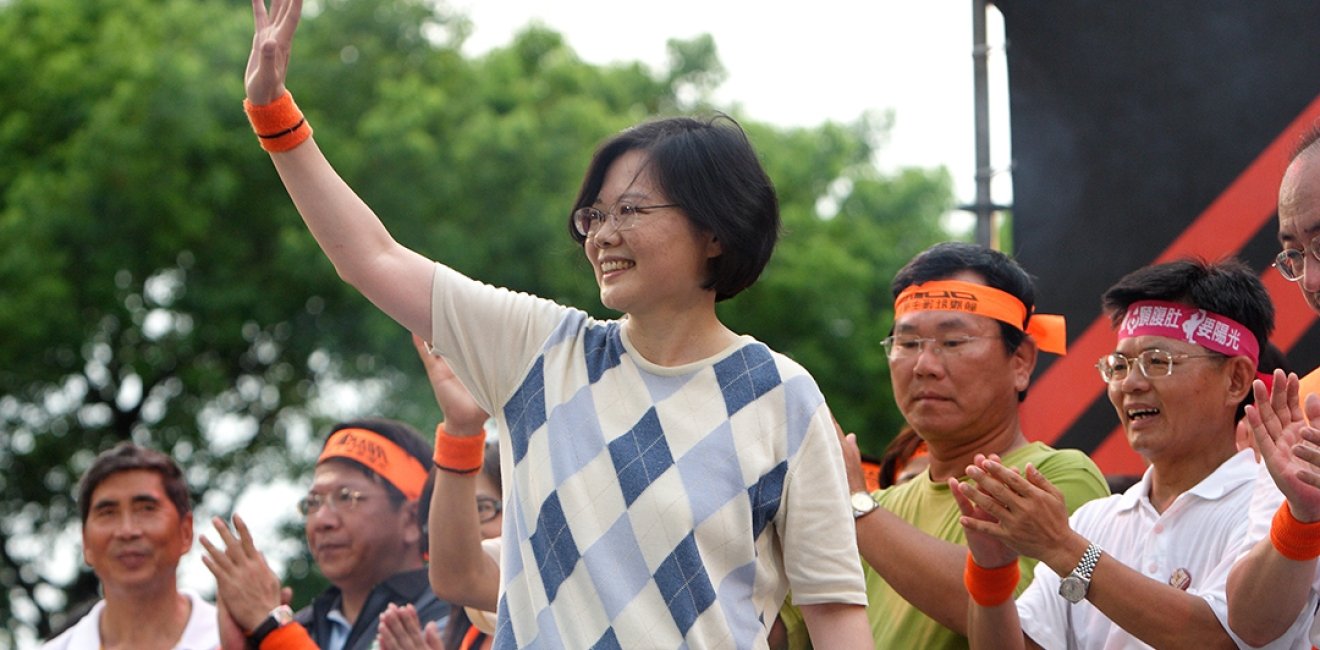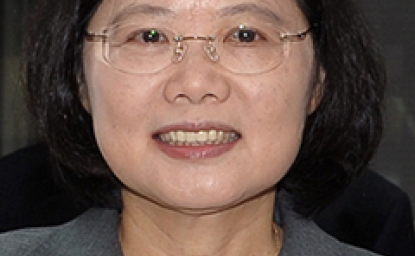Taiwan’s New President: An Unwitting Social Revolutionary
Tsai may well come to redefine female leadership in Asia.
Tsai may well come to redefine female leadership in Asia.

How exactly relations between Beijing and Taiwan’s newly elected government will evolve remains to be seen.
But Tsai Ing-Wen’s victory on January 16th, at a time when Taipei is striving to carve out a new identity for itself in a rapidly evolving East Asia, is a huge win for women.
This may apply not just to Taiwan but across East Asia. Tsai may well come to redefine female leadership in Asia — as Angela Merkel and Margaret Thatcher have in Europe.
Oddly enough, there is no dearth of female leaders in the Asia-Pacific region. In fact, there have been more women heads of state in Asia than from socially progressive Scandinavian nations, or from any other region.
No dynasty here
India’s Indira Gandhi , Corazon Aquino of the Philippines, Pakistan’s Benazir Bhutto and Park Geun-hye of South Korea are some of the most notable female leaders from the region in recent memory.
But while they may be formidable political forces in their own right, one characteristic unites them: they are all wives or daughters of former leaders, and thus cannot shake off the family legacies of their posts.
Even the most vehement of Tsai’s opponents, however, could hardly claim that she is anything but self-made. Raised as one of nine children, the 58-year-old has no dynastic connections to political circles.
Tsai is a single woman whose doctoral degree from the London School of Economics helped her as an academic and as a trade negotiator for Taiwan, which eventually led her into the world of politics with the Democratic Progressive Party. Hopes are thus high that she can be a role model.
Gender inequality for professional women remains a huge stumbling block across Asia, including Taiwan.
In East Asia, female access to university education is effectively on par with their male counterparts, as is access to entry-level professional positions. But according to a McKinsey & Co report “Women Matter: An Asian Perspective” (PDF), the gender difference widens greatly as careers take off.
Female empowerment?
In Taiwan, where women account for 44% of entry-level posts, only 18% take on middle-management positions and only 1% makes it to become CEO of an organization.
Taiwan’s track record hardly is the exception in East Asia, given that less than 1% of Japanese and South Korean women are heads of private companies, even though women account for about half of university graduates in both Japan and South Korea.
Yet, there is unlikely to be a marked improvement in female empowerment under a Tsai administration.
After all, her campaign platform has been focused on economic and security relations with mainland China. She is hardly known as a champion of women’s rights.
In that respect, Tsai is closer to Germany’s Merkel or Britain’s Thatcher, insofar as neither of them made a point of addressing gender-related issues.
But by virtue of holding the highest office in their countries through their own efforts without any familial advantage, both Merkel and Thatcher have forced men to accept working under female leadership.
Changing the mindset of Taiwanese society will be critical for its survival at a time when the government is facing the daunting task of defining its future identity.
Challenges ahead
Striking a balance between economic interdependence and independence will be the single biggest issue that will challenge Tsai’s administration.
Ensuring that the Taiwanese economy remains competitive in international markets despite the government’s unique status, and creating new jobs for its citizens so that they are not lured cross-Strait for more lucrative opportunities will be no easy task, but one that Taiwanese voters have tasked Tsai to resolve.
Tsai may not be a charismatic speaker, nor does she seem to be a natural politician. Yet, her election comes at a time when the stakes for Taiwan’s future are high.
Certainly, there will be no shortage of opportunities for her to come under the spotlight both at home and across Asia, when the region at large is facing the challenges of China’s ever-growing economic as well as military presence.
Should Tsai succeed in being regarded as a competent leader of Taiwan during such challenging times, she will not only inspire new generations of women to be equally ambitious, but also change the mindset of men both old and young regarding gender roles.
Tsai may be an unwitting social revolutionary, but her administration may well lead to a change in how men regard women, and not just want women want for themselves.
This article originally appeared on The Globalist.


The Indo-Pacific Program promotes policy debate and intellectual discussions on US interests in the Asia-Pacific as well as political, economic, security, and social issues relating to the world’s most populous and economically dynamic region. Read more



